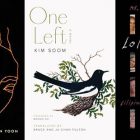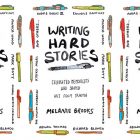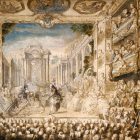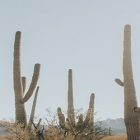Philomath and Lyric Knowledge
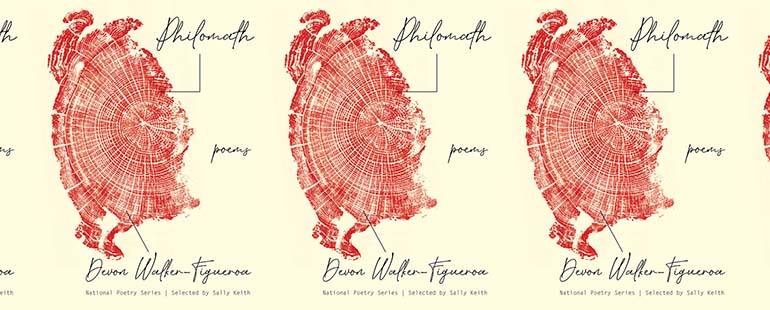
In anywhere but Philomath, Oregon, a poet remembers life in Philomath, Oregon. There, the poet remembers, the timber mill ghost town keeps in business one outlet, which “sells wood, the kind that grows / just here & in the holy lands.” In anywhere but Philomath, the poet imagines the best wood for building a Church, just as she anticipates who, after the structure has been built in a particular place, on a particular plot of land, will come inside and pray. Maybe a few teenagers attending Vacation Bible School, one of whom is a young poet who was reading Rimbaud in her school library (the school librarians keep on the shelves A Season in Hell but not Illuminations). Later, in a place that is not Philomath nor its twenty-minutes-away neighbor, Kings Valley, Devon Walker-Figueroa publishes her first collection of poems, Philomath. Those of us who read Philomath pretend to remember life in Philomath.
The teachers in Philomath, according to the poet of Philomath, have given up on nearly everyone. This is a kind of serious joke from the collection’s first poem, “Philomath,” lines of which identify “the smart kids who raise up / pigs to pay for college” and note how those kids are mocked by “people like Megan & me / & the boys who only wear camo.” Philomath, from the Greek, means a love or lover of learning, and residents in our West Coast namesake drive around with bumper stickers that say as much. One inflects Philomath the town and Philomath the Greek word on different syllables; the material of these poems is a slightly crooked culture, a word obviously still itself yet changed in a new context, changed by time.
The Philomath outlet sells wood that grows there and in the holy lands. How do these tendrils of the past take their own shape? In “My Materia,” a poem that envisions Umberto Boccioni’s 1912 painting Materia, Walker-Figueroa walks through a visual representation of this question:
Not the painting itself but the act of seeing the painting—really, not the act of seeing the painting but the representation of seeing—matters for the experience this poem creates. We either walk the streets of Milan or writhe in place; in doing so, one suspects the discomfort of writhing in place is a little bit like the discomfort of being inside a process, sustaining that sense of existing between, of experience, each in a culture that values efficiency and functionality over the work of living in any middle between extremes, between conclusions and data. This discomfort is a way of learning.
Do the people of Philomath love to learn? Do we watch them learn in change while reading this book, and do we, in the process of reading these poems, learn anything? One risks a degree of self-congratulation by announcing themselves as particularly fond of learning—both poet and reader alike—but Philomath is not a book of self-congratulation. “I subtract myself / from the shadow of an ash tree,” the poet writes in “Next to Nothing,” and as this sentence continues, one starts to recognize an almost pressurized difficulty here, that of presenting oneself as inhabiting a particular life: “ . . . knowing well / my life is not yet right- / fully mine.” Of course, a reader might almost instinctually wonder in this moment: Who or what takes partial ownership of our lives? Part of the difficulty of being just one person, the poet of Philomath speaks to herself and to her readers, is a matter of how one understands their body (elsewhere the poet writes about her role “to keep an eye / on what is left to burn into oneness the searing particulate,” and elsewhere she writes that “I’ve learned to regret my story”).
A type of learning that this book configures for its readers is physical: a particular knowledge each of us must teach ourselves throughout our lives. Here is the representation of one example: “Next to Nothing” continues, “though it has / moved the meat of me / beyond the beginning.” Here, as elsewhere, the hard-earned value of existing in the middle, in process, is what invites one’s sense that learning is possible: not quite a process of acquiring knowledge, but a recognition that moving beyond the beginning is valuable, difficult, fought for endlessly.
The knowledge of a poem—if a poem can be said to have knowledge—is not quite information-driven; if one needs facts or particular data, there are resources that streamline this kind of language. The knowledge of a poem, the way a poem itself loves to be learned over and again, is material: words are arranged in a specific order, and this order creates for us the effect that something occurs as we read the poem. There is no spreadsheet to e-mail as proof that something has been accomplished; there is only how the poem happens for us on the page, in our ears, in our minds. Between places, in the ever-present posture of movement, the poet of Philomath likewise loves her materials:
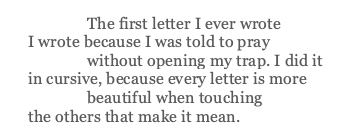
The pressing information that the letter-writer might have included in the envelope, in her prayer, is not included in this poem, “Gray Diggers.” The act of writing a letter in the first place—this question of how to speak without the noise of language, how to “pray without opening my trap”—lends Walker-Figueroa’s poetry its pulse of an experience, something happening as we read it on the page. Meaning is made, then, when the private recipient opens the letter: “The first letter I ever / wrote was addressed to GOD WITH US . . .”
So we open the book, read these poems, then read them again.
Philomath was selected by Sally Keith for Milkweed’s 2020 Open Competition of the National Poetry Series—and, because especially in this context one should recognize their hometown advantage, Walker-Figueroa is a Ploughshares contributor (the poem “Damp Room” from Philomath was published in the Spring 2019 issue, guest-edited by Rigoberto González). So much can be (and likely will be) written about this person’s relationship to these places in this book; by person, I don’t quite mean one’s notion of “speaker,” an ambivalent presence somewhere behind the poem—but a representation of oneself and their body as changing on the page, attributed to someone who lives “a life not yet rightfully mine.” Perhaps, though, like the person who first moves through them, one realizes after the fact that an experience happened in Philomath, in Kings Valley, and in Milan. Once that realization happens, it becomes clearer that “Every story is / ashamed to be true,” as Walker-Figueroa writes in the final poem. Likewise, the knowledge these poems suggest to their readers is sometimes ashamed to be true:

